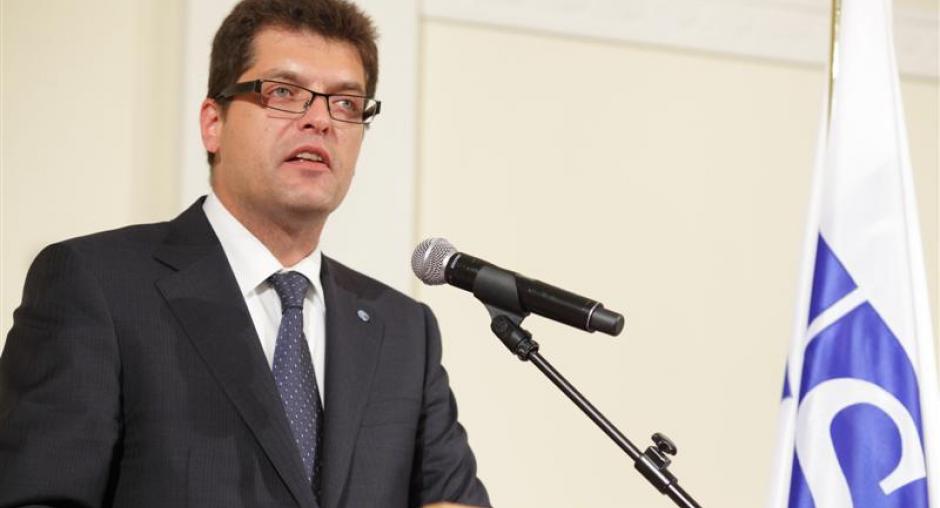ODIHR Director encourages Kyrgyzstan’s authorities to further improve the conduct of elections to consolidate democratic development

BISHKEK, 20 March 2012– During a visit to Bishkek today on Tuesday, Ambassador Janez Lenarčič, the Director of the OSCE Office for Democratic Institutions and Human Rights (ODIHR), encouraged Kyrgyzstan’s authorities to consolidate the country’s democratic achievements and further improve its framework for the holding of democratic elections.
The purpose of the visit was to present ODIHR’s final report on the 30 October 2011 presidential election and discuss recommendations for bringing the country’s election-related legislation and practices into closer conformity with OSCE commitments and international standards. Talks also covered specific forms of co-operation to support efforts by the country in this direction.
Following a meeting with Assia Sasykbaeva, the Deputy Speaker of Kyrgyzstan’s parliament, Lenarčič welcomed the government's expressed intention to address the shortcomings identified in the report.
"It is important to continue the process of democratic development and to build on the progress demonstrated during the October elections,” Lenarčič said. “We urge Kyrgyzstan’s authorities to take further steps to improve electoral practices and the legal framework for elections, in line with the report’s recommendations. ODIHR stands ready, upon request, to provide support and expertise in this process.”
Lenarčič emphasized that the authorities should continue to display the needed political will to hold elections in line with democratic standards, and that it is important to introduce the necessary reforms well in advance of the next elections, to ensure a level playing field and provide sufficient time for organization and preparation.
The ODIHR final report states that the inclusive candidate registration process provided voters with a wide choice, and that the campaign was open and respected fundamental freedoms. Overall, a wide range of information was available to voters and election day proceeded in a calm atmosphere, without violence.
At the same time, the report identified a number of steps to improve the process, including ensuring transparency in the work of election commissions, addressing systematic problems with voter registration and election-dispute resolution, ensuring the integrity of voting, counting and tabulation of votes, and fostering greater participation in national minority areas.
The OSCE/ODIHR Election Observation Mission deployed for the presidential election consisted of a 14-member core team based in Bishkek and 28 long-term observers deployed throughout the country. On election day, 385 short-term observers, from 40 OSCE participating States, were deployed across the country.
